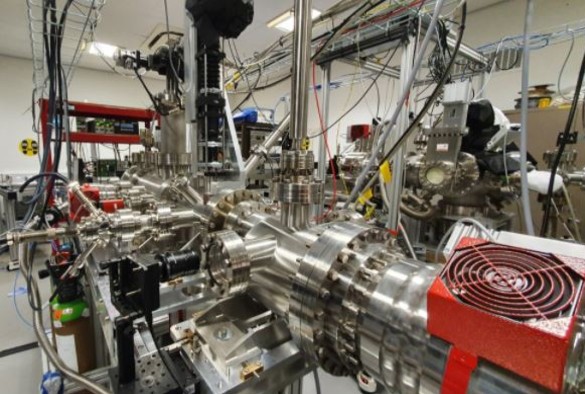
University of Liverpool physicists are leading a new innovative project that aims to translate their fundamental physics research into a real-world solution.
The Liverpool project, funded by the Science and Technology Facilities Council (STFC), will support the development of QuantumJET, a quantum gas jet-based beam scanner.
This new device will produce micrometer-focused beams of atoms and molecules for non-invasive, high resolution beam monitoring applications, as well for use as targets in storage rings. It will monitor high-intensity beams such as those found in spallation sources or accelerators. More widely, the technology will be very attractive for any accelerator or light source that would benefit from non-destructive online beam monitoring, including medical accelerators and ion implanters.
Professor Carsten Welsch, Head of the Department of Physics at the University of Liverpool, said: “This is another fantastic success for our gas jet monitor R&D at the Cockcroft Institute. The project will allow us to transfer technology originally developed for the Large Hadron Collider towards much wider applications and help overcome current limitations. It shows how our R&D can create wider impact outside of fundamental research”
The QuantumJET project is one of seven projects supported by the STFC to enable scientists to work with industry partners to translate STFC-funded research into commercial use.
Jason Green, STFC Associate Director External Innovation, said: “Projects such as these, which take cutting-edge research and reimagine it to address real-world challenges, are at the forefront of innovation.
“With this funding, researchers will be able to work with their industry partners to turn their exciting and novel ideas into reality.
“Through these partnerships, the quest for knowledge and understanding that makes the UK a great leader in science will also reap societal and economic rewards.”
The STFC funding for the QuantumJET project comes from the Follow-on Fund, designed to fund a short term proof-of concept project, which could lead on to further commercial opportunities.
Further information on the STFC projects funded through the IPS and Follow-Fund can be found here>>>